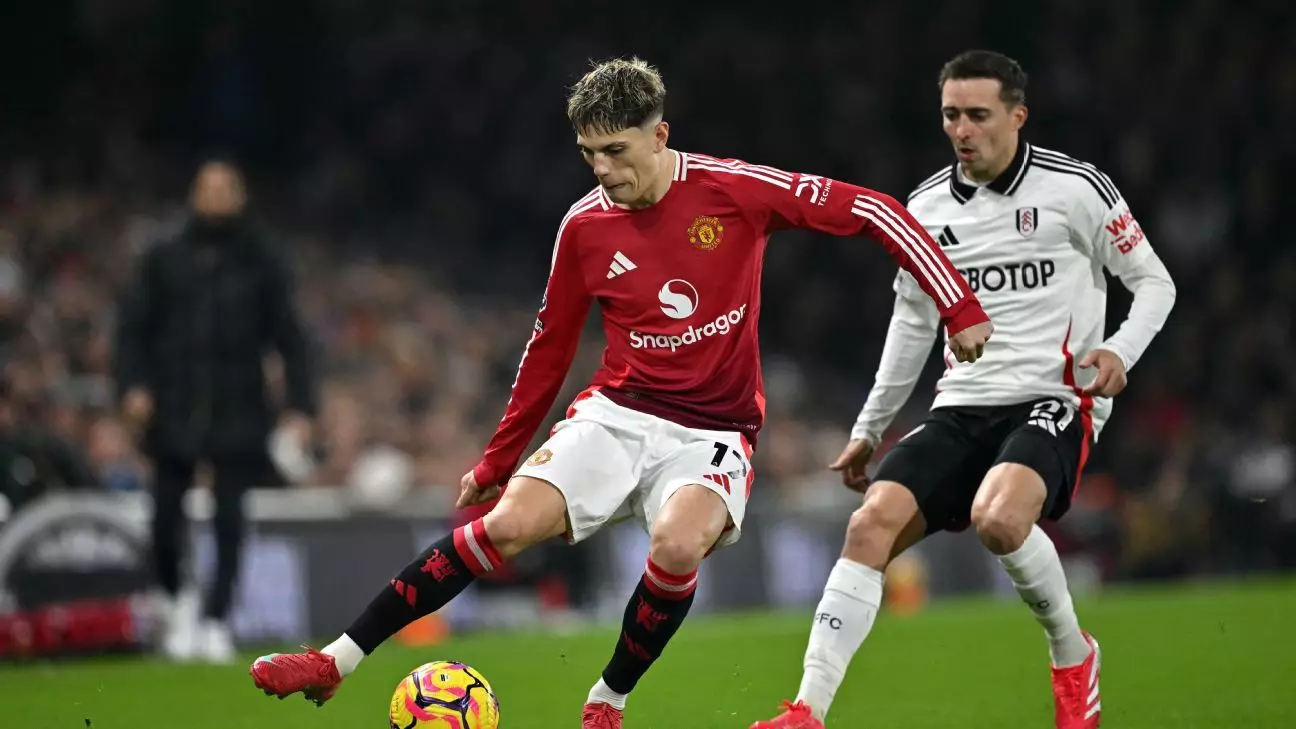Alejandro Garnacho, a young talent from Manchester United’s academy, has emerged as a critical figure for the club in recent weeks. Following a period of disappointment that notably excluded him from key matches, Garnacho has not only reclaimed his position in the squad but has also significantly impressed management, most notably head coach Ruben Amorim. This turnaround is more than a mere revival of form; it signifies a deeper personal transformation and adaptation to the rigorous demands of the senior team.
Interestingly, the narrative surrounding Garnacho contrasts sharply with that of his teammate Marcus Rashford. While Rashford has faced ongoing challenges that led to his exclusion from multiple matchday squads, Garnacho has showcased an unyielding determination to impress. Amorim’s praise for Garnacho highlights a critical point: the young winger’s ability to adapt quickly. His performance in the recent 2-0 victory over Steaua Bucharest exemplifies his newfound confidence, and the Argentine’s ability to contribute positively upon entering the field speaks volumes about his readiness to respond to the coach’s requests.
This divide in fortune highlights an essential truth in professional sports: adaptability and willingness to learn often dictate success. Amorim’s emphasis on Garnacho’s transformation subtly points to a universal principle in coaching and player development. While some players may struggle under pressure, Garnacho’s willingness to embrace a more demanding training and recovery regime showcases a determination that not all young players possess.
Amorim’s comments regarding his coaching style reflect a broader conversation in football about the relationship between players and coaches. The assumption that coaches should strictly conform to a traditional style is increasingly challenged in modern football. Amorim advocates for a different, perhaps more intensive approach, suggesting that it may not resonate with every player. However, Garnacho has demonstrated that understanding and accepting a coach’s philosophy can lead to significant personal and professional growth.
This adaptability has not gone unnoticed, with whispers of interest from clubs such as Napoli and Chelsea circulating. At a time when Manchester United faces the need for financial stability, Garnacho’s consistent performance has increased his value, prompting speculation about his future. However, the prevailing sentiment from Amorim suggests a desire to keep talent developed through the academy. His commitment to nurturing young players could be a strategic maneuver to fuse proven talent with fresh prospects, ensuring a balanced squad.
As the club prepares for their upcoming matches, Garnacho’s role will likely be pivotal given his momentum. Amorim’s acknowledgment of him and fellow academy product Kobbie Mainoo serves as encouragement for other young talents within the Manchester United ranks. The expectation that the club should leverage its academy resources not only serves on-field needs but also aligns with the off-field necessity of sustainable financial practices.
Alejandro Garnacho exemplifies the transformational journey of a young athlete prepared to embrace change and challenge. Through the perceptive guidance of Ruben Amorim, Garnacho’s trajectory may very well inspire a new generation of players at Manchester United, underscoring the importance of adaptability in sports. As the landscape of football continues to evolve, stories like Garnacho’s will likely become more prevalent, providing a blueprint for success reliant on resilience and open-mindedness.

